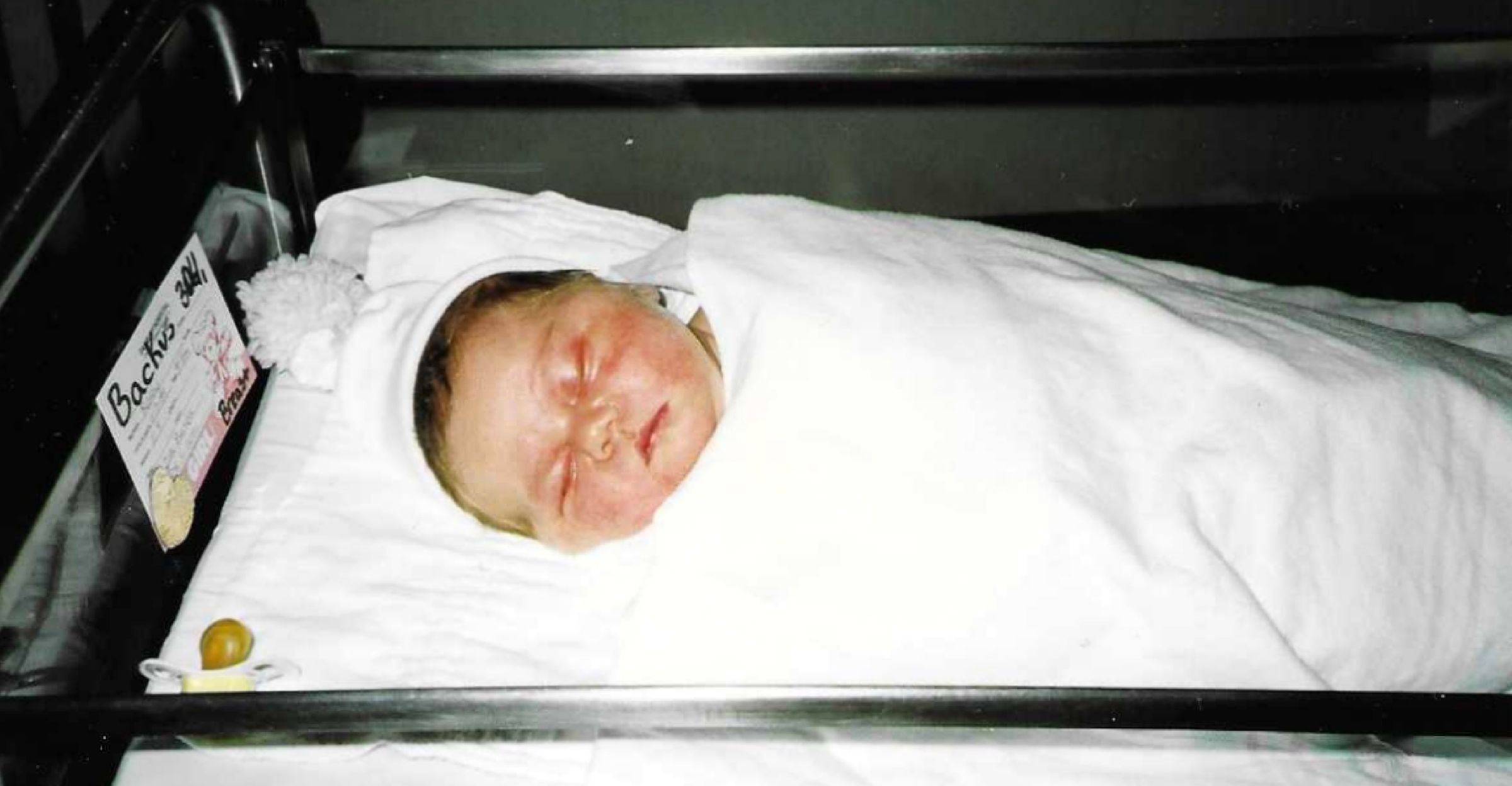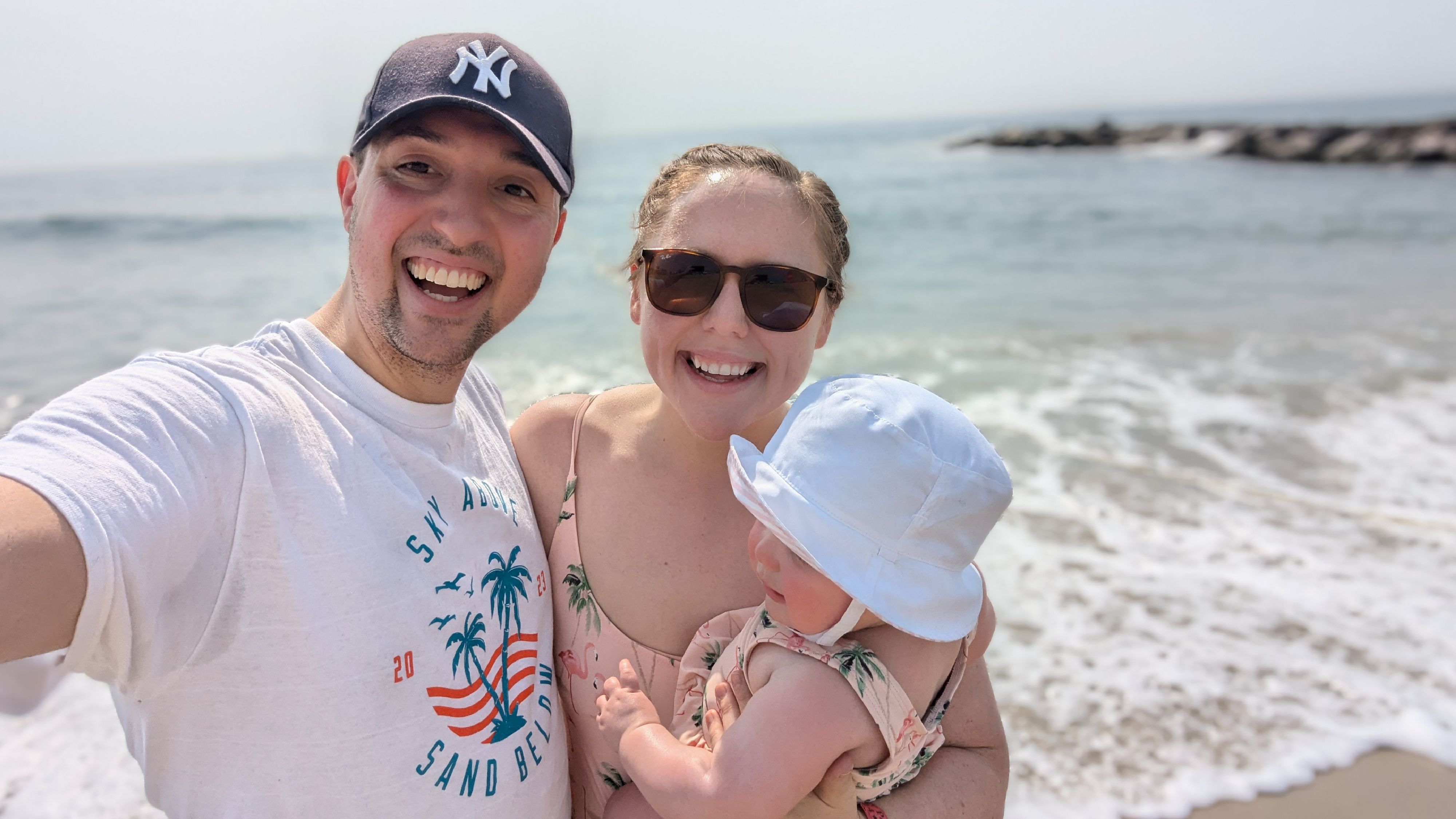What Inspired Me to Help Protect My Daughter Against Serious RSV Lung Infection

By Jon Florio, Head, U.S. Brand and Reputation Communications
When my wife Meg was one month old, she was hospitalized with severe respiratory syncytial virus (RSV) lung infection. Meg woke up one night with a horrible cough and her mom was instructed by her doctor to monitor it until the next morning. But when the cough got worse and Meg began struggling to breathe, her mom had the doctor come over for a house visit that same night. Meg was ultimately sent to the emergency room and was then admitted to the hospital for several days. While Meg, of course, doesn’t remember the incident, it left an imprint on her parents – and as a result, RSV has always been on her radar as a potentially dangerous virus for babies.
In July of 2023, we welcomed our daughter Elia into our family. While we wanted to be ‘relaxed’ first-time parents and rely on our gut instincts to tell us when something was wrong, we also knew we needed to be proactive in helping to protect her against diseases that may be prevented by immunizations, such as serious RSV lung infection. Working here at Sanofi over the last few years, I’ve learned more about the impact RSV can have on babies, including the fact that 2 out of 3 babies will get RSV by age 1 and that babies are 16x more likely to be hospitalized with serious RSV lung infection than with the flu. Although severe RSV is rare, it’s the leading cause of hospitalization in babies under 1. These realities – combined with Meg’s and her parents’ lived experience – guided our decision to immunize Elia with Beyfortus® (nirsevimab-alip).
Beyfortus is a prescription medicine used to help prevent a serious lung disease caused by respiratory syncytial virus (RSV) in:
- Newborns and babies under 1 year of age born during or entering their first RSV season.
- Children up to 24 months of age who remain at risk of severe RSV disease through their second RSV season.
Beyfortus should not be given to children with a history of serious allergic reactions to nirsevimab-alip or any of the ingredients in Beyfortus.
Beyfortus may not protect all children. See below for additional Important Safety Information.

Elia with Jon and Meg at the beach.
After consulting with our pediatrician and knowing that Beyfortus had been recommended by the Centers for Disease Control and Prevention (CDC), the American Academy of Pediatrics (AAP) and the American College of Obstetricians and Gynecologists (ACOG), Elia received a 100mg dose of Beyfortus at her 4-month-old appointment and didn’t experience any side effects after the immunization.
I knew immunizing Elia would help protect her from serious RSV lung infection and our peace of mind. I want to emphasize that last point: it is impossible to fully know the health status of the people you interact with. I felt at ease knowing we had helped to protect Elia from lung infection caused by RSV.
Today, Elia is a happy, easy-going baby. She loves joining our family walks with me, Meg and our two dogs and is growing into her chatty, outgoing personality. After RSV hospitalized my wife all those years ago, to now having a little girl of our own who has an extra layer of protection against RSV, it is certainly a reflection of how far science has come in just a few decades, and just feels so gratifying to our family.
IMPORTANT SAFETY INFORMATION
Your child should not take Beyfortus if your child has a history of serious allergic reactions to nirsevimab-alip or any of the ingredients in Beyfortus. Before your child receives Beyfortus, tell your healthcare provider about all of your child’s medical conditions, including if your child:
- has ever had a reaction to Beyfortus.
- has bleeding or bruising problems. If your child has a problem with bleeding or bruises easily, an injection could cause a problem.
Tell your healthcare provider about all the medicines your child takes, including prescription and over-the-counter medicines, vitamins, and herbal supplements. Your infant should not receive a medicine called palivizumab if they have already received Beyfortus in the same RSV season.
Serious allergic reactions have happened with Beyfortus. Get medical help
right away if your child has any of the following signs or symptoms of a
serious allergic reaction:
- swelling of the face, mouth, or tongue
- difficulty swallowing or breathing
- unresponsiveness
- bluish color of skin, lips, or under fingernails
- muscle weakness
- severe rash, hives, or itching
The most common side effects of Beyfortus include rash and pain, swelling, or hardness at the site of your child’s injection. These are not all the possible side effects of Beyfortus. Call your healthcare provider if you have questions about side effects.
INDICATION
Beyfortus is a prescription medicine used to help prevent a serious lung
disease caused by Respiratory Syncytial Virus (RSV) in:
- Newborns and babies under 1 year of age born during or entering their first RSV season.
- Children up to 24 months of age who remain at risk of severe RSV disease through their second RSV season.
Please see full Prescribing Information, including Patient Information, for more details.